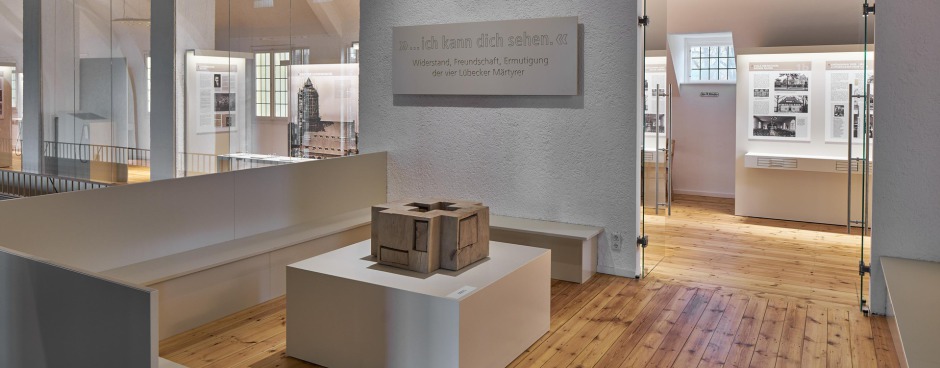
The priests get together
With increasing distance to those in power, orientation towards the Word of God becomes more and more important for pastor Karl Friedrich Stellbrink. The National Socialists’ hostility towards the church is now obvious to him. He recognises the war emanating from Germany as pointless and criminal. With this attitude, he stands alone in the Evangelical Lutheran Church in Lübeck.
In the early summer of 1941, the Protestant pastor meets the Catholic chaplain Johannes Prassek of the Sacred Heart Church. Despite the strong denominational differences at the time, the men feel
their kinship in spirit and entrust each other with their critical attitude towards the system. Prassek introduces the Protestant pastor to his Catholic colleagues Hermann Lange and Eduard
Müller.
From now on the four clergymen exchange leaflets that are critical of the regime, newspaper reports, sermons, and other things. All four of them listen to forbidden foreign radio stations and inform
each other about things that the authorities want to keep secret. The chaplains organise religious discussion groups in the parsonage of the Catholic congregation of the Sacred Heart of Jesus, in
which political issues are also addressed. Stellbrink lets his critical attitude become apparent in conversations with his parishioners and in letters to young front soldiers.
Neighbours and parishioners tell the Gestapo that the clergy are hostile to the Nazi regime.
The Gestapo observes the men and also uses informers to gain the clergy’s trust and incriminating information.

